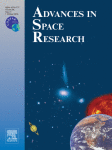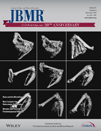 Climate scientists from the U.S. Department of Agriculture have withdrawn a study they wrote under eyebrow-raising pseudonyms.
Climate scientists from the U.S. Department of Agriculture have withdrawn a study they wrote under eyebrow-raising pseudonyms.
The withdrawn paper, about predicting surface temperatures of planets, appeared in Advances in Space Research in August, 2015, and is authored by Den Volokin and Lark ReLlez.
Normally, a withdrawal wouldn’t raise our eyebrows, but climate scientist Gavin Schmidt pointed out on Twitter that the authors’ names are eerily similar to another pair who have published climate papers together: Ned Nikolov and Karl Zeller. Yes, that’s correct — Den Volokin and Lark ReLlez are Ned Nikolov and Karl Zeller spelled backwards. Nikolov and Zeller are currently listed as a physical scientist and a meteorologist, respectively, at the U.S. Department of Agriculture.
The notice doesn’t state the reason for withdrawal, and Pascal Willis, editor-in-chief of Advances in Space Research from the Earth Physics Institute in Paris, France, referred us to the study’s authors for more information. Elsevier, which publishes Advances in Space Research, confirmed that the paper was retracted due to an “authorship issue” — namely, that the authors had used pseudonyms.
We used the contact information listed on the paper for “Den Volokin,” and got this response: Continue reading U.S. gov’t researchers withdraw climate paper after using pseudonyms
 A bone researcher based in Japan with 10 retractions under his belt has retracted two more papers for similar reasons — problems with the underlying data, and including co-authors who didn’t participate in the project.
A bone researcher based in Japan with 10 retractions under his belt has retracted two more papers for similar reasons — problems with the underlying data, and including co-authors who didn’t participate in the project.
 Climate scientists from the U.S. Department of Agriculture have withdrawn a study they wrote under eyebrow-raising pseudonyms.
Climate scientists from the U.S. Department of Agriculture have withdrawn a study they wrote under eyebrow-raising pseudonyms.



 A Copenhagen court has
A Copenhagen court has 